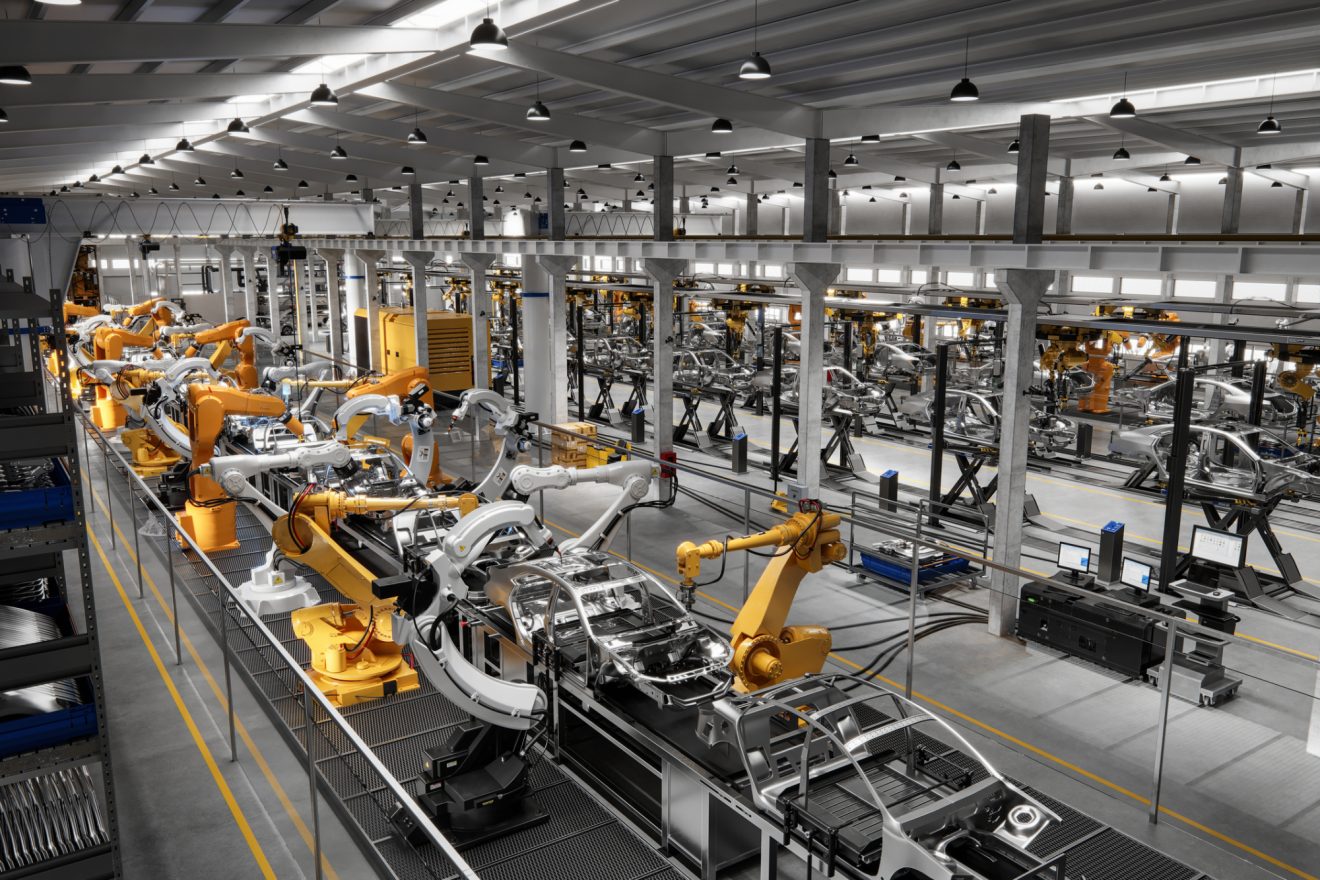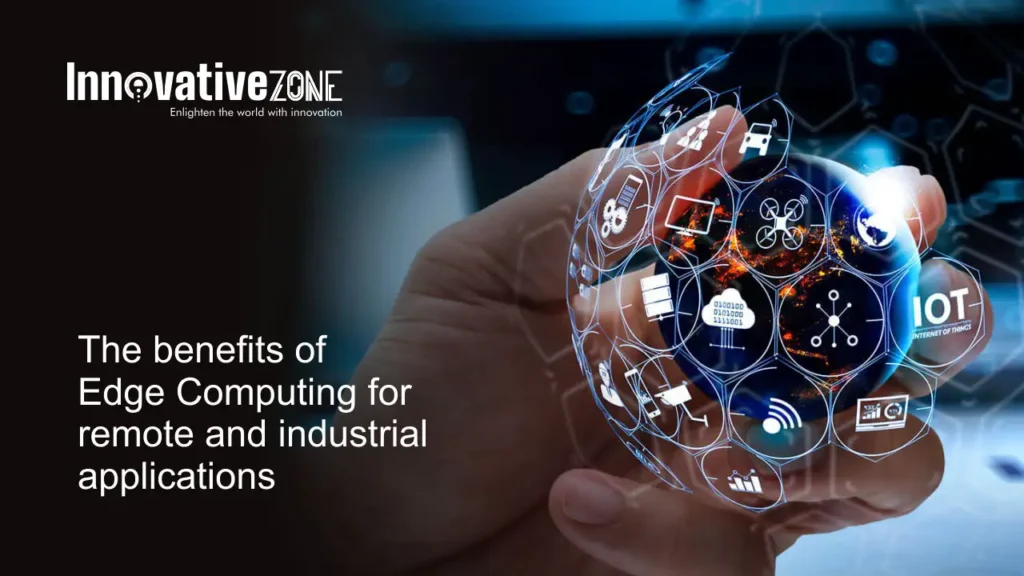The benefits of Edge Computing for remote and industrial applications
A substantial expansion has been seen in remote and industrial sector using Edge Computing technology. It integrates its role in advancing various technologies such as IoT, artificial intelligence, 5G and many more.
What is Edge Computing?
It is a computing paradigm which is used to manage the massive amount of data produced by IoT devices. It reduces lengthy transmission, increases bandwidth requirement and latency between cloud and IoT devices. It enhances latency, privacy and scalability by processing data at the source. It is unique in a way as it can be used for plenty of applications including its high bandwidth, low latency and fast access to network.
Chief features of Edge Computing
- Edge computing eliminates the necessity to transfer large amount of data to a centralised cloud servers for its processing. It processes data closer to the source which is its most significant benefit. The localisation of processing of data enables faster response times which is quite critical for those applications which requires real time data analysis like autonomous vehicles and industrial automation systems.
- As computing enhances data security by keeping data closer to its source. It also reduces the requirement to transfer sensitive information to potentially vulnerable networks. It processes and stores data locally. Hence the risk of interception of data is reduced during transmission. The processing and storing data locally help the organisations to comply with data privacy regulations in order to ensure that data doesn’t leave its jurisdiction.
- By processing data locally, edge computing reduces the uses of network bandwidth which also minimises the amount which is needed to be transmitted. It also enables business to handle large data volume inner efficient way and reduces the congestion of network. Apart from that, the reduced data transmission requirements give space to network resources which leads to enhancement in overall productivity specially in environment with limited bandwidth.
- Edge computing minimises the need for expensive cloud processing and storage by lowering its operational cost. Only important data is sent for further analysis to the cloud through which companies can save the storage cost as well as data transfer costs. It reduces reliance on centralised cloud services through which business can decrease their dependency on costly cloud infrastructure ultimately leading to significant cost savings.
- It enables the collection and analysis of data from remote and challenging environment. It ensures that data is processed an acted upon immediately even in areas with limited connectivity. This characteristic feature of edge computing is quite crucial in order to make timely decisions and ensure the efficiency of operations in remote locations.
- It provides enhanced reliability by reducing the dependency on centralised data centres and cloud services. Edge computing can process data locally and continue to operate by insuring consistent and continuous operation of data even facing the connectivity issue or some kind of network disruptions. This technology reduces the risk of point of failure as it is able to detect it quickly, making the system more reliable.
Usage and benefit of Edge Computing in various remote and industrial sectors
Edge computing technology is applied across various industries which is revolutionising the way data is processed and being utilised by keeping it close to its source in real time. Industrial Personal Computers are required in implementation of solutions of these technologies. Some of the usage of edge computing in different sectors are listed below:
1. Manufacturing

Edge Computing plays a pivotal role in manufacturing sector. It maintains sensors and predictive, inspection regarding defects and controlling the quality. Since the data is processed locally, manufacturers can monitor it and detect any defect before its occurrence. The quality of product is also ensured through using this automated optical inspection system. It boosts the efficiency of production and reduces downtime.
2. Oil and Gas:

Edge computing offers remote access monitoring to oil and gas industry. Such operations are oftenly performed in remote areas and harsh environments. In such environment, edge computing allows remote monitoring and asset management without reliance upon a consistent cloud connectivity. It leads to safety and better operational efficiency.
3. Energy

In this sector, IoT devices and edge computing is used in order to optimise the energy consumption management. The energy use adjustment and real time monitoring makes the operation more efficient and lowers the cost as well.
4. Autonomous vehicles

Edge computing Reduces latency which boost safety and navigation. The data is processed in such a manner that it enables the real time processing of data for safety and navigation. Vehicles can make decisions which results in boosting its safety and driving efficiency by lowering latency.
5. Healthcare

In the healthcare industry, edge monitoring system utilises cameras to detect instances of falling for the elderly people facing brain injuries. Real time video analysis continuously captures photos and classify various circumstances and instantly sounding an alarm in emergency scenarios. Edge computing server is equipped with deep learning models that have already undergone free training and are specifically created to death force with high accuracy and low latency.
6. Agriculture

It is applied in agricultural development through a monitoring network comprised of a considerable number of censor notes. As a result, agriculture increasingly moves away from a production model that is centred on humans and towards one that is centred on information and software. The usage of edge computing in context to agriculture meets the demanding needs of precision agriculture by integrating automation, IoT technologies, edge and cloud computing through virtualization.
Edge Computing addresses the obstacles of managing various devices and centres and provides a solution to it. Various industries are you using edge computing which is significantly boosting their efficiency and reducing cost. This new technology will significantly bring a drastic change in the business industry.


